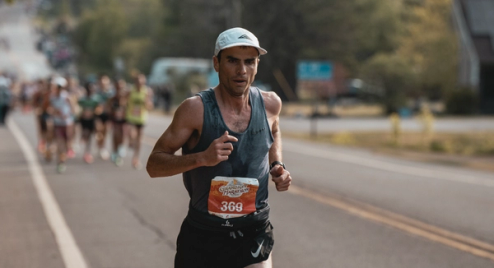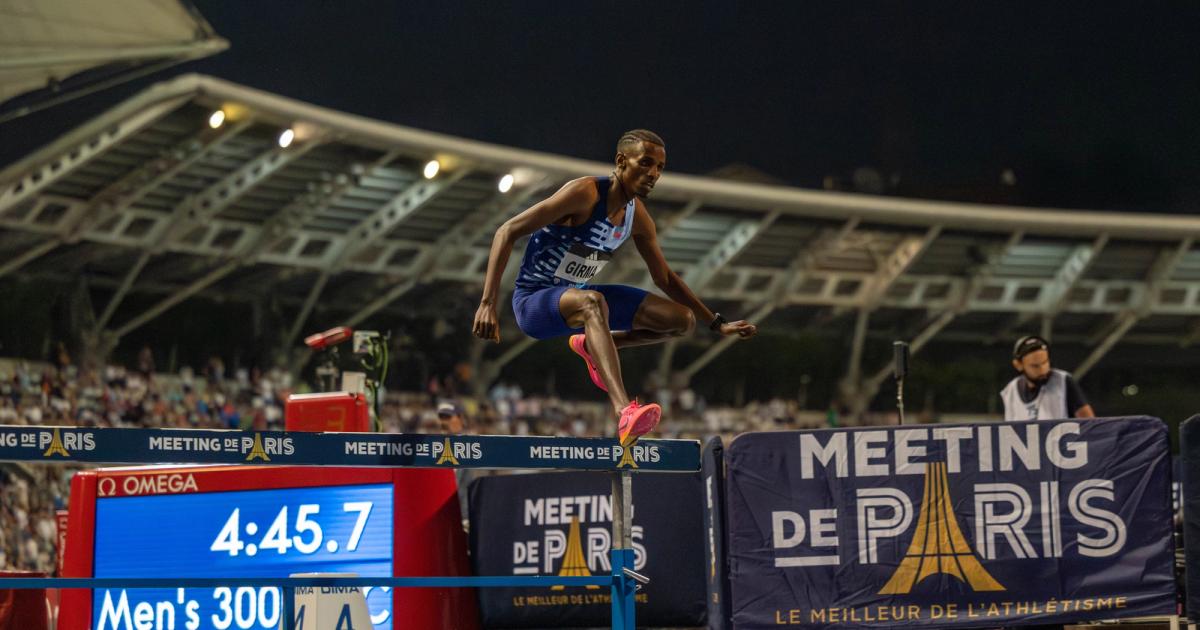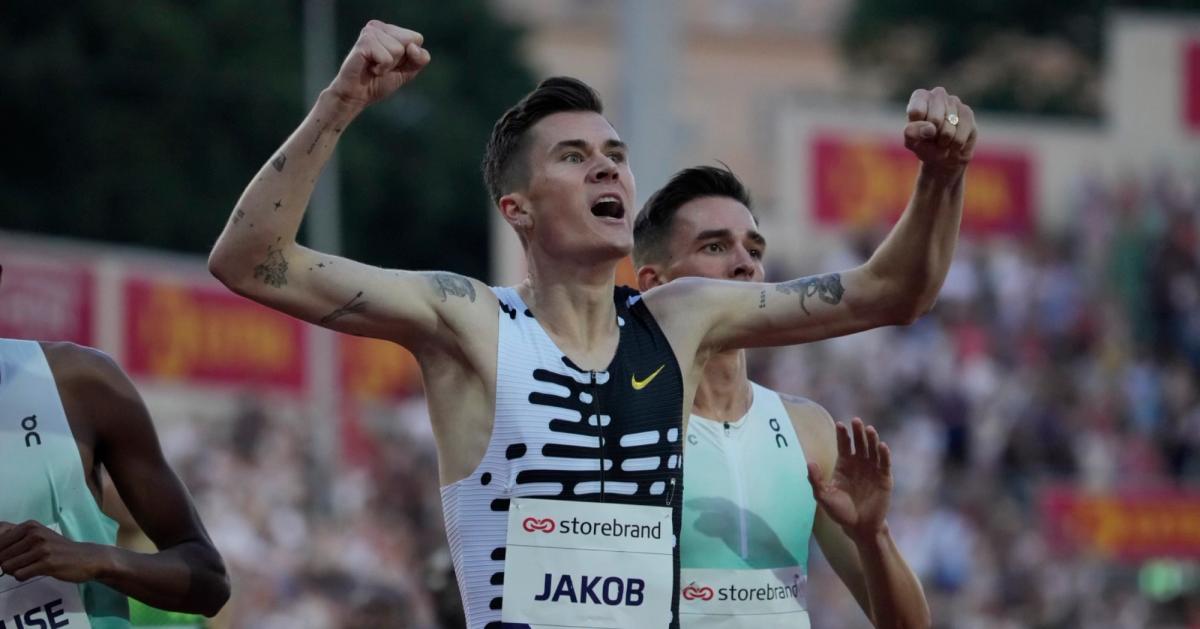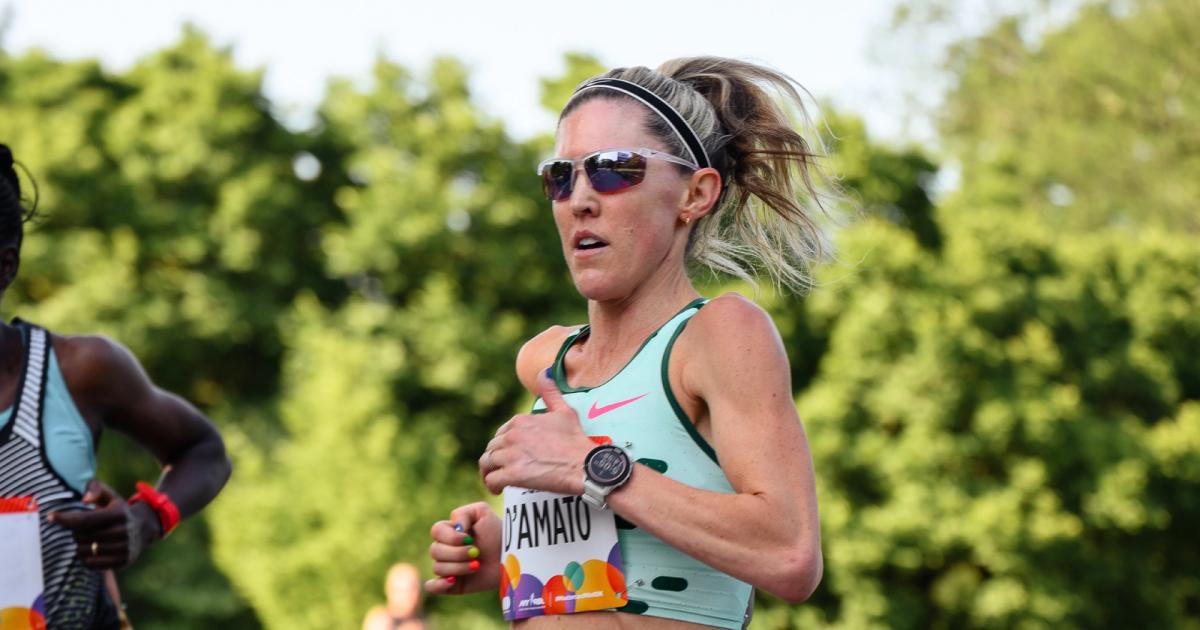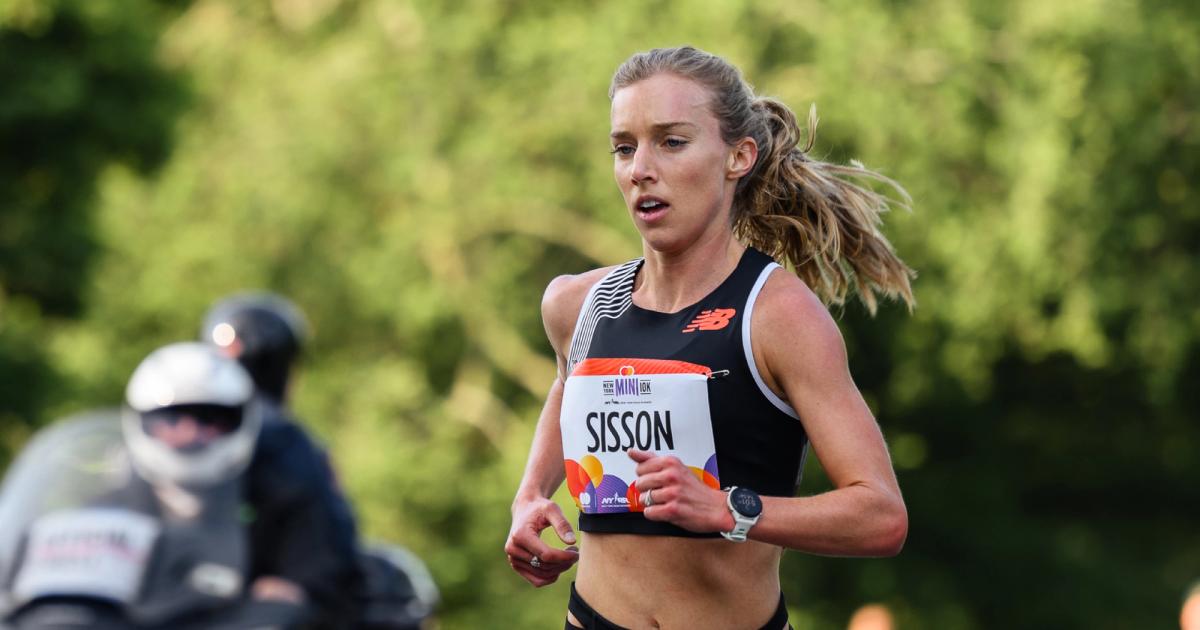By Kyle Merber
June 21, 2023
I love how you can look at the start list for Marathon Trials and see a few names that call out to you like phantoms from results pages past. Our sport is an unforgiving one, and generally, when your body can’t handle the training anymore, that’s it. You hang ‘em up and start a newsletter.
The closest thing to that sort of career evolution you’ll find in track & field is the technically retired, but still-fit road dog, who hunkers down for a few months to take a swing at an OTQ. Take Patrick Smyth, for example. The former Notre Dame standout made a couple of World Cross Country teams and was a regular presence near the front of domestic road and eventually trail races for years, until retiring in 2020. So imagine my surprise when I saw his name – with that unmistakable “y” – once again near the top of the Grandma’s results.
I knew I had to catch up with him and hear what motivated him to give the marathon another shot, while seemingly enjoying some separation from the pro side of the sport.
I was pleasantly shocked to see your name pop up in the Grandma’s results. I sent a text to a friend saying, “now that’s a name I haven’t seen in a long, long time.” Where did that come from?
Patrick Smyth: I don't know! I decided back in January with a buddy of mine from Notre Dame, Tim Moore, the former Footlocker champ, that we should do a marathon together. We picked Grandma’s and that was the impetus to start training a little.
In March, I went to meet some friends in Moab and ran a half and went 64 minutes. At that point, I thought I should probably try to get in the elite field in Minnesota and not just run with Tim (editor’s note: Tim ran 2:37).
And so I reached out and I was initially told no. That just proved that you're only as good as your last race. And if you haven’t raced in three years then it turns out race directors don’t take too kindly on that. But after some begging, I got into the elite field.
Correct me if I am wrong, but you were fully retired after the 2020 Trials, right? Clearly you must have stayed in touch and still been running a bit.
PS: I've stayed in relatively good shape since not running competitively anymore. I got into ski mountaineering and have been doing that here in Santa Fe and just around the intermountain west. I’ve also jumped in some trail races just to stay tapped into the community, so I have been running – just not actually racing like I used to.
Was it a matter of things getting more serious as you got more fit or was this the plan? You said you were running a bit beforehand, but how much?
PS: The plan was to run moderately more than I already was. I was running maybe like five or six miles a day. Then once I signed up for the marathon I just gradually worked my way up in training.
Are we talking like 100 miles a week and actually training?
PS: I only got up to like 75 miles a week but even with that, I was like, “oh God, I feel like I'm going to break.” I had a lot of weeks between 60 and 70 to stay healthy, but it was consistent, which was the most important thing. And I was doing other cross-training type stuff.
The race itself – like, I'm guessing you went in thinking you could run the qualifier. At what point were you like, wow, I'm actually having an amazing day.
PS: Going through halfway, because yeah, the plan was to go through at about 1:09, 1:10, being comfortable. And I ended up going through closer to 1:07. And I felt really good.
It was strange because there weren’t really guys around me. They were either running exactly to the Trials time, or they went out with the lead pack. And then there was like, nothing in between.
But I think at that point I realized that I started seeing people come back off the lead the pack so I just started trying to catch those guys. That's when I knew it was going to be a good day.
I mean this is now… what, your fourth Olympic Trials that you've qualified for? Is there a takeaway here? Is there something that we could all learn from the fact that after, a few years of really not taking this that seriously, that you could – at 36 – come back and run 2:14 for your first real race in forever?
PS: Yeah, good question. I'd say my takeaway has been do less… but, do more, consistently. I look back at other marathon build-ups I had while running professionally and I was just always doing too much. Getting really fit and then getting injured, or, you know, getting really fit then just getting worn down. So I think my takeaway this time around has been to be a little undercooked, and it seems to work out all right.
I mean, you were eighth in 2016. Is there a part of you thinking I should really dive back into this now? Or is it, you know, this is working. Just having fun. Have some balance in my life. Let's just, like, go enjoy the Trials.
PS: No – no ambition to take it any more seriously than that currently. It's kind of like a nice life supplement at this point
And you know, the Trials… it’s obviously this great experience. But I've been lucky enough to have been to three of them so I don't even know if I'll actually do the Trials this time.
I'd love to do Boston. I've never had the chance to do that. And so I'm kind of looking a bit towards like, if I can keep some of this consistency, maybe do a good half marathon sometime in the fall, and then target Boston and have a similar kind of build up towards that... I think that’d be more personally satisfying than going and having another Trials experience, as great as those have been in the past.
I feel like you have to go at least do a long run.
PS: Yeah, that's a good point. I try to convince myself that, you know, it's not that big of a deal, but it is a big deal. Okay, so I’m still thinking about it. I've got time to think about it!
When you look back on your professional running career, what is your takeaway? If you're describing what you did to someone, you know, at a bar, that you just met, what is your perspective on how it all went down now, a number of years later?
PS: I was really lucky. I had a lot of really good coaches and training partners. Just overall, I had a lot of great opportunities. Even after I hung up on the road racing in the marathon, I was able to pick up a second career on the trails. And that was incredible. I think that that was a case of serendipity – I was trying to extricate myself from the sport and then wound up falling face first back into it.
Seems like that's a theme. Keep trying to get out.
PS: Keep trying to get out and then yeah.
And I will hopefully see you at the Olympic trials. I will not be racing, but I hope you do show up.
PS: Never say never. Yeah, who knows?
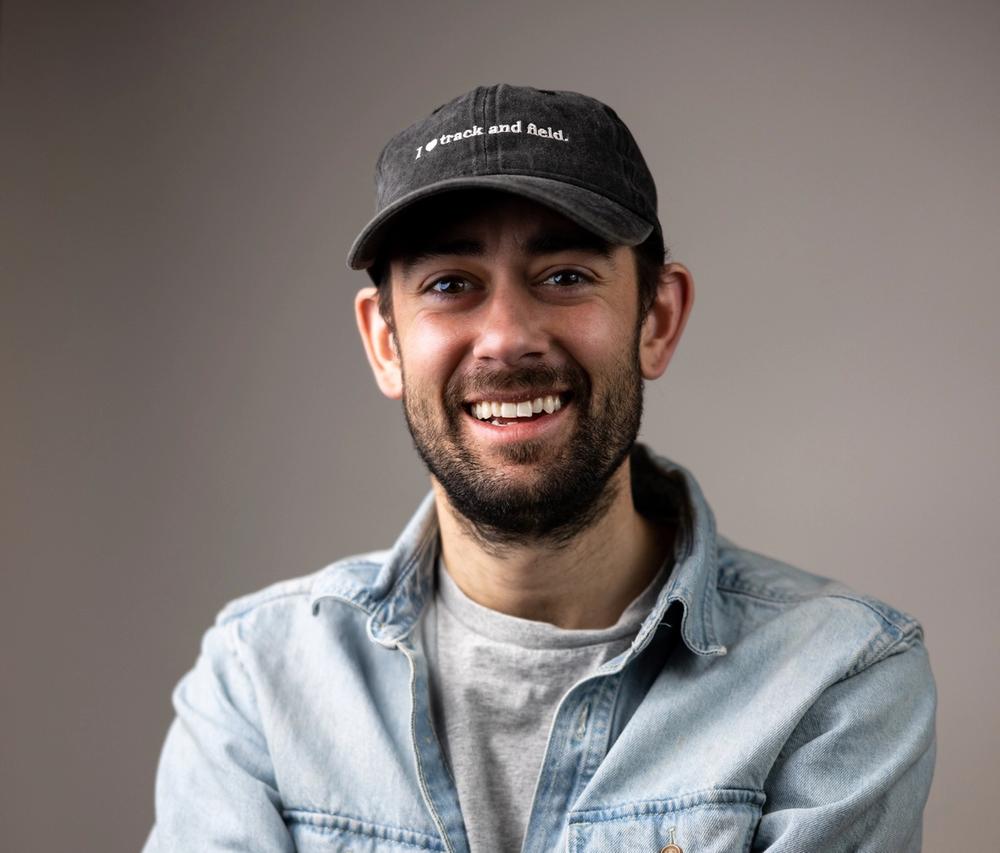
Kyle Merber
After hanging up his spikes – but never his running shoes – Kyle pivoted to the media side of things, where he shares his enthusiasm, insights, and experiences with subscribers of The Lap Count newsletter, as well as viewers of CITIUS MAG live shows.
